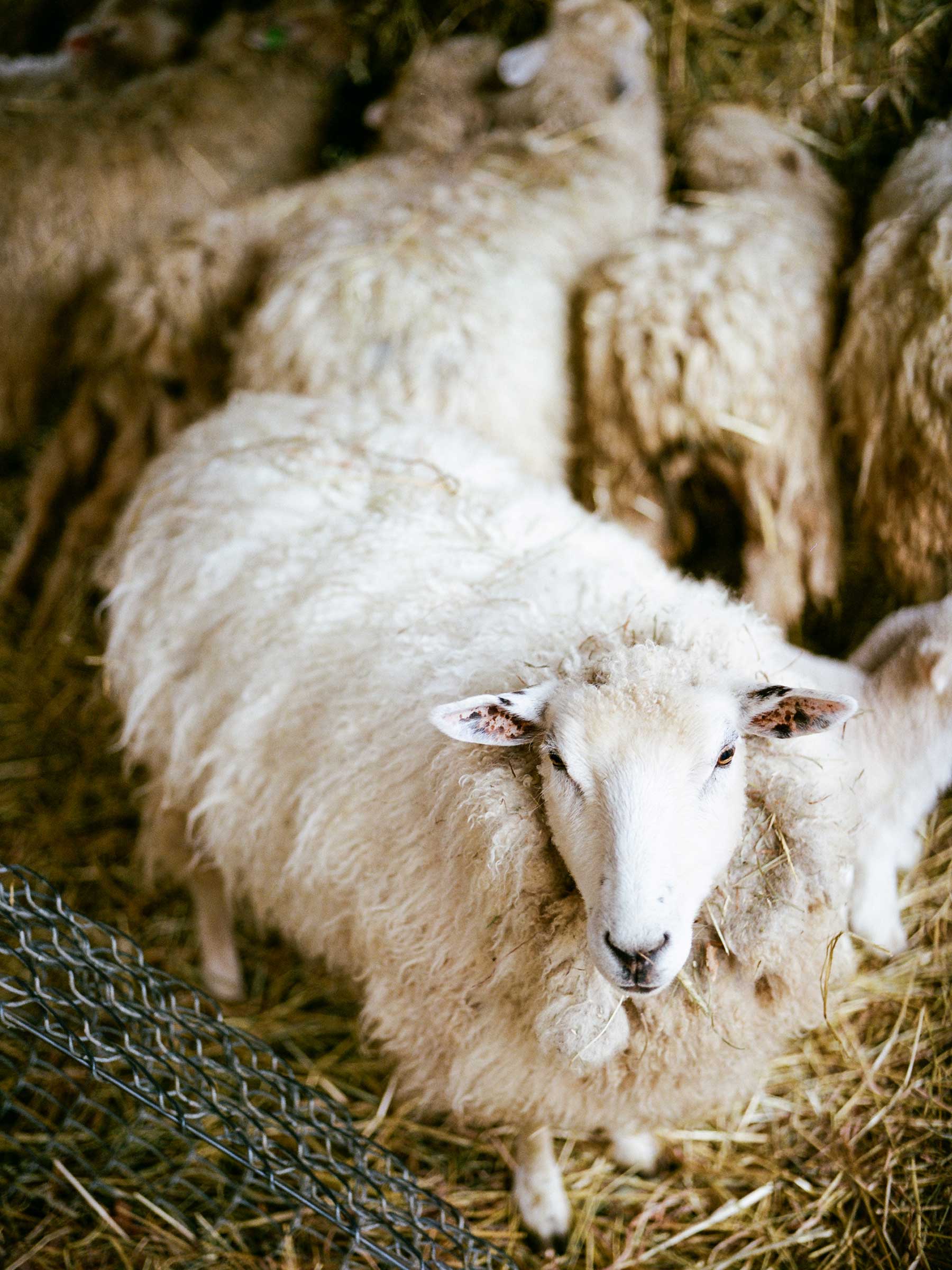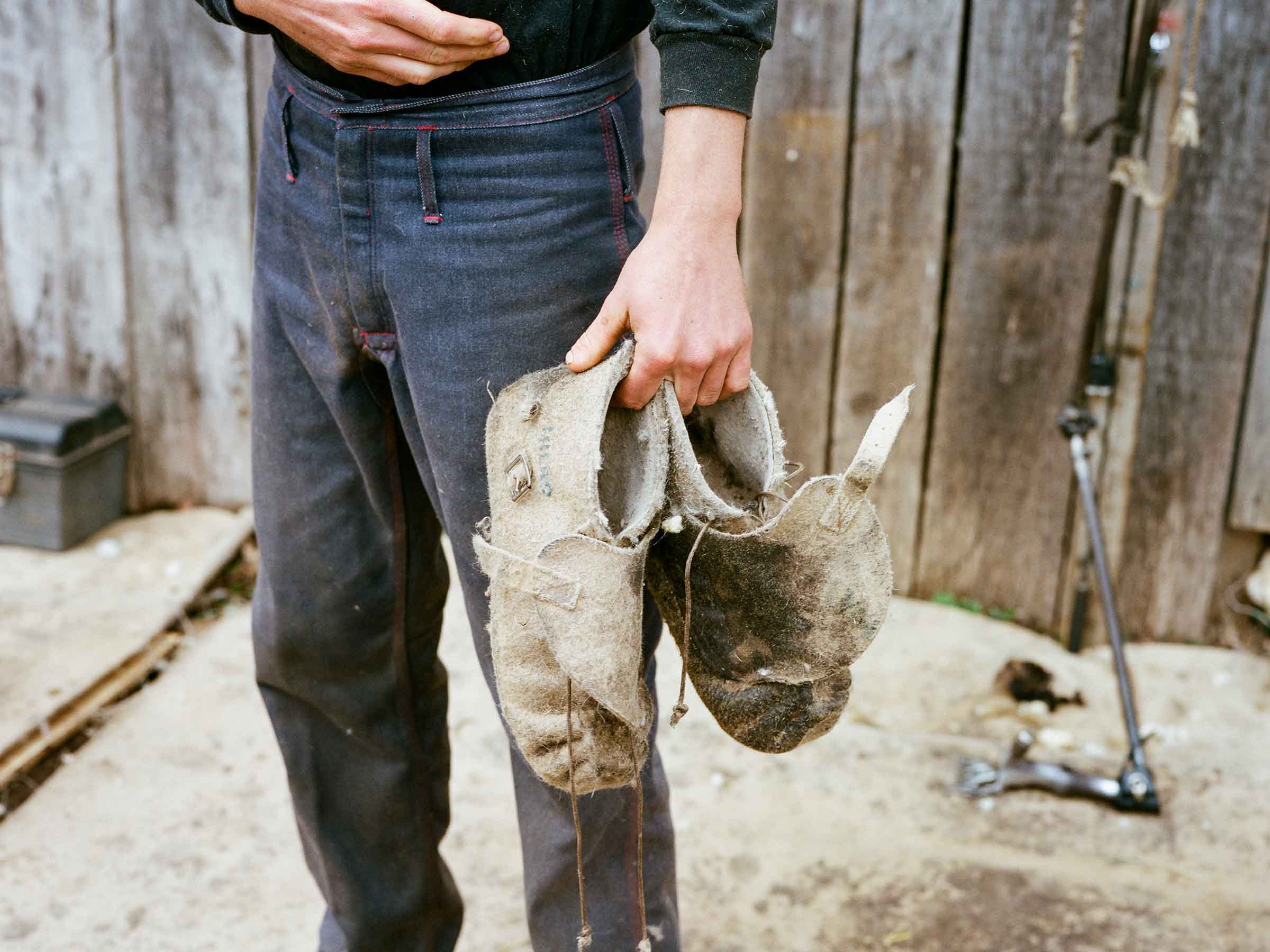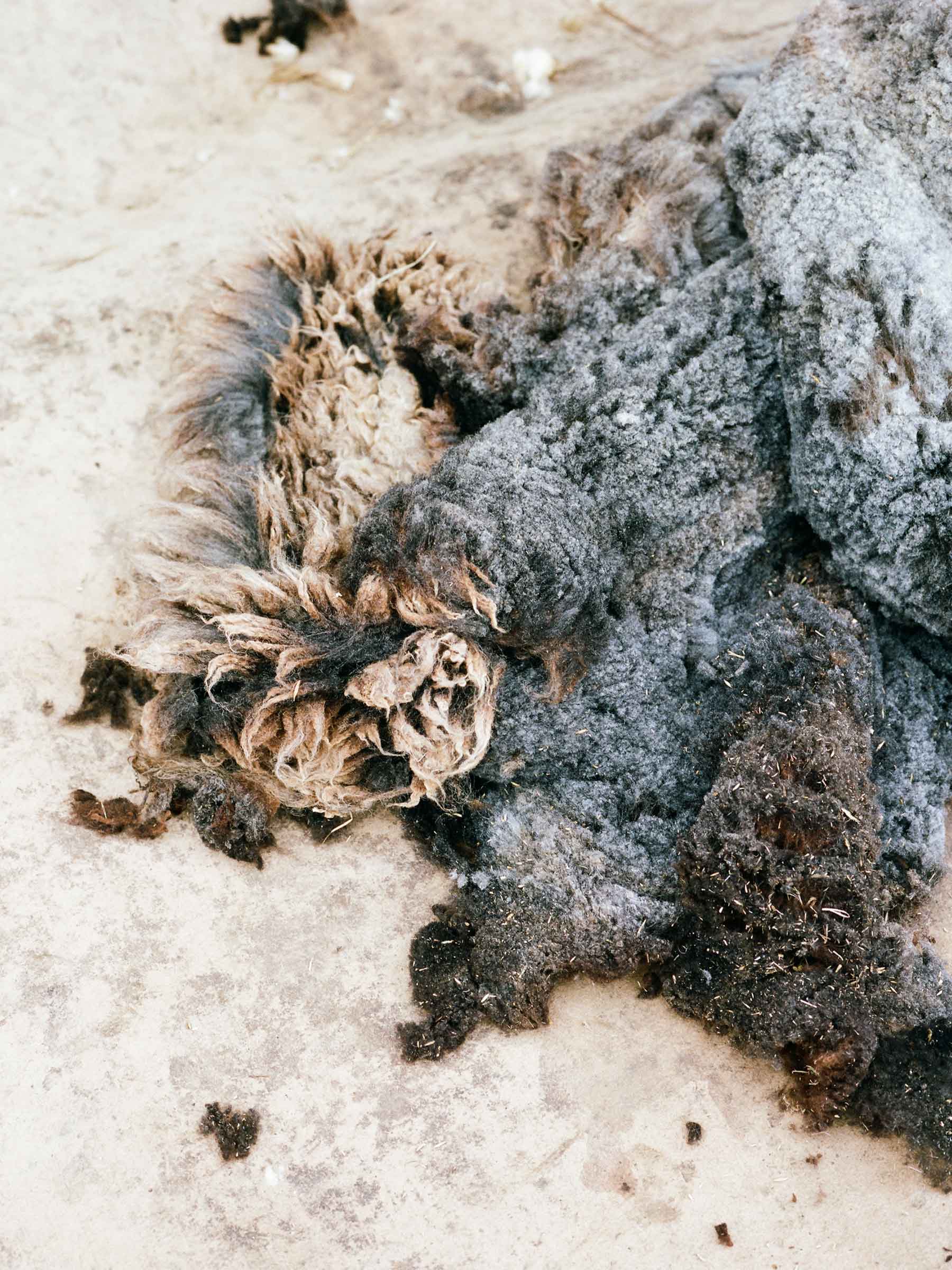Black Thorn Farm, Sandy Mush, NC
Seth and Sharon Dubuc
Beneath the hovering fog of early April, we descended into the basin of Big Sandy Mush to join in the work at Black Thorn Farm as she awoke to the cacophony of Spring. Lambs born only hours before zig-zagged across the pasture, noisy chicks gave chorus from the crowded brooder and the promising green of garlic's first shoots rose like wands above the rich Appalachian mountain soil. For five days, we did as the farmers do, mostly, both in the field and at their kitchen sink and by dusk of each afternoon our bodies were properly tired and our minds a little more at ease. Seth and Sharon Dubuc bought this 28- acre parcel seven years ago and are steadily returning the steep terrain to its original wild and natural state. The Dubucs spend as much of their days as they can on this land, "stewarding the grounds like an 18th century homestead in which there is a natural balance between food production and the integrity of the land." Breeding is paramount in their approach to raising a vigorous flock and they do so with grace and integrity which is why we chose to partner with them on our first harvest of wool. "Our animals are part of an interlocking fabric of vegetables, fruit, grain and forest."
Our weeklong visit was timed with the shearing of Black Thorn's sheep, a motley mix of classic English wool breeds including Lincoln, Romney, Dorset and Border Leicester. Veteran father and son shearers Jonathan and Ben Hearne own the large parcel abutting Black Thorn and opened their shearing season with us before they left for the first of several long stretches on the road, working farm to farm throughout the Southeast.
These men are true masters of their craft, making quick and gentle work of the complex choreography involved in keeping the fleece intact and the sheep subdued. Sharon cooked a momentous feast of shepherds pie with grits and lamb for our midday lunch and we opened a bottle of Gamay to toast the significance of honest labor and a connection to this land that now connected each of us seated at the table.
In the days that followed we laid out each fleece and combed the wool with our hands, removing as much vegetable matter as we could before being weighed by the mill. 'Skirting' became the meditative forum for conversation as we caught up on one another's lives, learned about the intricacies of rotational farming and dreamt of what this wool might become once spun into yarn and tied to my loom. The sun let loose on the third day and we shed our winter coats and filled up mason jars with Seth's farm-brewed beer. At week's end, we dropped the wool off at the small mill just up the road where it would take three months to fully process before shipping to us in California.
photography: Brian Ferry





































